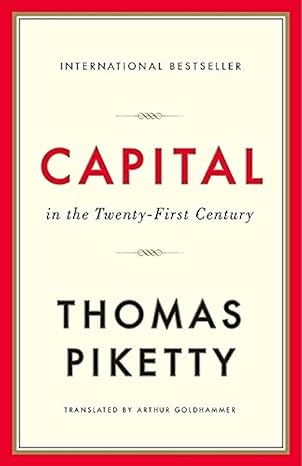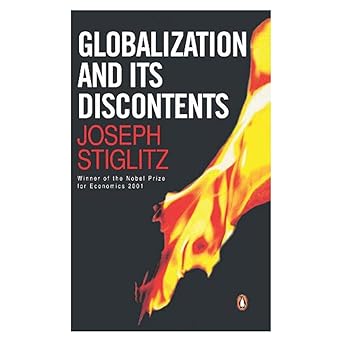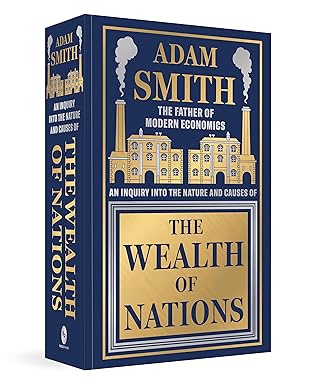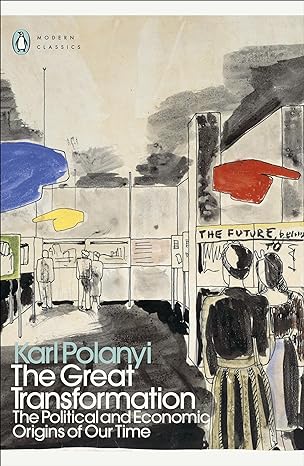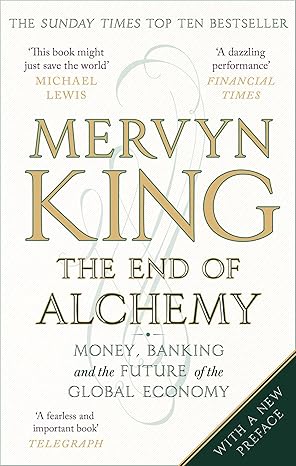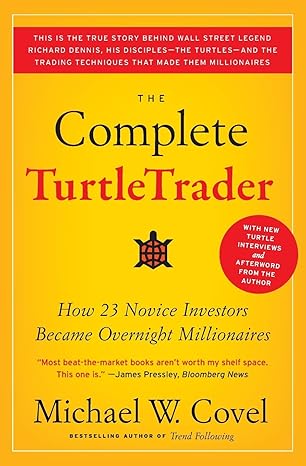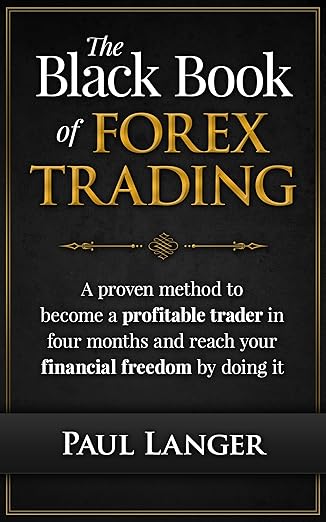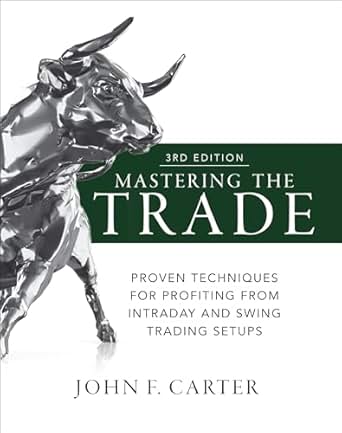The world economy is a complex and dynamic system, influenced by a myriad of factors ranging from technological advancements and trade policies to geopolitical shifts and environmental challenges. In today’s interconnected world, economic developments in one region can have profound effects across the globe, shaping the financial stability, growth prospects, and well-being of nations. This blog explores the key trends, challenges, and opportunities in the global economy, offering insights into how economic forces shape our daily lives and the future of our world. Whether you’re a seasoned economist or simply curious about the forces driving global change, this blog aims to provide a deeper understanding of the world’s economic landscape.
1. “Capital in the Twenty-First Century” by Thomas Piketty
10-point summary of “Capital in the Twenty-First Century” by Thomas Piketty:
1. Historical Analysis of Wealth and Income Inequality:
– Piketty examines data from over 20 countries spanning three centuries to analyze the dynamics of wealth and income inequality.
2. The Capital/Income Ratio:
– He highlights how the ratio of capital (wealth) to income has fluctuated over time, with capital accumulation generally outpacing economic growth.
3. R > G Formula:
– Piketty introduces the formula r > g , where r is the rate of return on capital and g is the rate of economic growth. When r exceeds g, wealth inequality increases because capital owners accumulate wealth faster than the economy grows.
4. Patrimonial Capitalism:
– The book warns of a return to “patrimonial capitalism,” where inherited wealth dominates, leading to a concentration of wealth and power in the hands of a few families or individuals.
5. Wealth Distribution Trends:
– Piketty shows that wealth distribution is becoming increasingly unequal, with the top 1% of the population owning a significant portion of global wealth.
6. Inequality and Democracy:
– He argues that growing inequality threatens democratic institutions by enabling the wealthy to exert disproportionate influence over political processes.
7. Progressive Taxation:
– Piketty advocates for global progressive taxes on wealth and inheritance as a means to curb inequality and prevent the concentration of wealth.
8. The Role of Education:
– The book discusses the importance of education and skills development in reducing income inequality and promoting social mobility.
9. Globalization and Inequality:
– Piketty examines how globalization has affected wealth distribution, often exacerbating inequality as capital becomes more mobile while labor remains relatively immobile.
10. Policy Recommendations:
– Piketty calls for international cooperation to implement policies that address inequality, such as wealth taxes, transparency in financial markets, and public investments in education and infrastructure.
Capital in the Twenty-First Century challenges conventional economic thinking by arguing that unchecked capitalism naturally leads to greater inequality, necessitating policy interventions to ensure a more equitable distribution of wealth.
2. “Globalization and Its Discontents” by Joseph E. Stiglitz
10-point summary of “Globalization and Its Discontents” by Joseph E. Stiglitz:
1. Critique of Globalization:
– Stiglitz argues that while globalization has the potential to benefit all, it has often led to increased inequality and hardship, especially in developing countries.
2. IMF’s Role:
– The book criticizes the International Monetary Fund (IMF) for its handling of economic crises in developing nations, arguing that its policies often prioritize financial stability over social welfare.
3. Washington Consensus:
– Stiglitz critiques the “Washington Consensus,” a set of neoliberal economic policies that promote free markets, deregulation, and privatization, claiming they often fail to consider the unique needs of individual countries.
4. Economic Crises:
– The book discusses how IMF policies during financial crises, such as the East Asian crisis of the late 1990s, exacerbated economic downturns by enforcing austerity measures that worsened unemployment and poverty.
5. Capital Market Liberalization:
– Stiglitz argues that rapid liberalization of capital markets can lead to financial instability, as it exposes countries to volatile capital flows and speculative attacks.
6. Social and Environmental Costs:
– The book highlights the social and environmental costs of globalization, such as the exploitation of labor, environmental degradation, and the erosion of social safety nets.
7. Need for Reform:
– Stiglitz calls for reforms in global institutions like the IMF, World Bank, and WTO, advocating for policies that are more attuned to the needs of developing countries and that prioritize sustainable development.
8. Voices of the Discontented:
– The book gives voice to those who have been adversely affected by globalization, including farmers, workers, and small businesses in developing countries, emphasizing the need for more inclusive policies.
9. Role of the State:
– Stiglitz argues that effective governance and state intervention are necessary to ensure that globalization benefits all, particularly by protecting vulnerable populations and regulating markets.
10. Alternative Globalization:
– The book concludes by proposing an alternative model of globalization that is more equitable and democratic, with greater emphasis on social justice, environmental sustainability, and the protection of human rights.
Stiglitz’s work challenges the dominant neoliberal approach to globalization and advocates for reforms that make global economic integration more inclusive and beneficial for all.
3. “The Wealth of Nations” by Adam Smith
10-point summary of “The Wealth of Nations” by Adam Smith:
1. Division of Labor:
– Key Concept: Smith argues that dividing labor into specialized tasks increases productivity and efficiency, leading to economic growth.
2. Invisible Hand:
– Market Regulation: Smith introduces the idea that individuals pursuing their self-interest unintentionally contribute to the overall economic good through the “invisible hand” of the market.
3. Free Markets:
– Economic Freedom: Smith advocates for free markets with minimal government intervention, believing that competition leads to better products and services.
4. Self-Interest as Motivation:
– Economic Driver: He posits that self-interest is a powerful motivator that drives innovation, production, and trade, benefiting society as a whole.
5. Laissez-Faire Economics:
– Limited Government Role: Smith argues for a limited role of government, restricted to defense, justice, and the provision of certain public goods that the market cannot efficiently supply.
6. Importance of Capital Accumulation:
– Wealth Creation: Smith emphasizes that the accumulation of capital (savings and investments) is essential for economic growth and the expansion of productive capacity.
7. Role of Competition:
– Market Efficiency: Competition is seen as a regulating force in the economy, encouraging innovation, lowering prices, and improving quality.
8. Labor Theory of Value:
– Value Determination: Smith suggests that the value of a good or service is determined by the amount of labor required to produce it.
9. Role of Government:
– Public Goods and Justice: Smith acknowledges the need for government to provide public goods, enforce contracts, protect property rights, and maintain justice.
10. Critique of Mercantilism:
– Economic Misconception: Smith criticizes the mercantilist belief that wealth is measured by the accumulation of gold and silver, arguing instead that real wealth is derived from the production and exchange of goods and services.
“The Wealth of Nations” is a foundational work in classical economics, laying the groundwork for modern economic thought on free markets, competition, and the role of government.
4. “The Great Transformation” by Karl Polanyi
10-point summary of *”The Great Transformation”* by Karl Polanyi:
1. Market Economy as a Novel Concept:
– Polanyi argues that the modern market economy, where markets dominate social life, is a relatively recent development, emerging in the 19th century. It marks a departure from earlier economies, where social relations and cultural norms governed economic activity.
2. Embedded Economy:
– In traditional societies, the economy was “embedded” in social institutions like kinship, religion, and politics. Economic activities were not separate but integrated into the broader fabric of society.
3. The Double Movement:
– Polanyi introduces the concept of the “double movement,” where the expansion of the free market leads to social dislocation, prompting society to push back and demand protective measures. This tension between market forces and social protections defines the dynamics of the modern economy.
4. Fictitious Commodities:
– Polanyi argues that land, labor, and money are “fictitious commodities” because they are not naturally produced for sale on the market. Treating them as commodities leads to significant social and environmental harm.
5. The Role of the State:
– The state plays a crucial role in creating and maintaining markets, contrary to the laissez-faire ideology that markets function best without state intervention. The state often intervenes to enforce market rules and protect the interests of capital.
6. Critique of Market Liberalism:
– Polanyi critiques market liberalism, which advocates for minimal state intervention in the economy. He argues that unfettered markets inevitably lead to social and economic instability, requiring state intervention to protect society.
7. Social Dislocation and Crisis:
– The imposition of market economies led to significant social dislocation, such as the destruction of traditional ways of life and the rise of social problems like poverty and inequality. These dislocations often resulted in social unrest and economic crises.
8. The Gold Standard:
– Polanyi discusses the gold standard as a key mechanism for maintaining international economic stability during the 19th and early 20th centuries. However, he argues that it also contributed to economic instability and social discontent, leading to its eventual collapse.
9. The Great Depression:
– Polanyi views the Great Depression as a consequence of the failure of the market economy and the gold standard, illustrating the limits of market self-regulation and the need for state intervention to stabilize the economy.
10. Reembedding the Economy:
– Polanyi calls for “reembedding” the economy within social and political frameworks that prioritize human needs over market imperatives. He argues that a sustainable and just society requires balancing market forces with social protections and democratic governance.
“The Great Transformation” is a foundational work in economic sociology, offering a critical analysis of the rise of the modern market economy and its impact on society.
5. “The End of Alchemy: Money, Banking, and the Future of the Global Economy” by Mervyn King
10-point summary of “The End of Alchemy: Money, Banking, and the Future of the Global Economy” by Mervyn King:
1. Vulnerability of the Financial System:
– King argues that the global financial system is inherently unstable and vulnerable to crises, as demonstrated by the 2008 financial meltdown.
2. The Concept of Alchemy in Banking:
– The “alchemy” refers to the banking system’s ability to create money from nothing by lending out more than the reserves they hold, a process King sees as both powerful and dangerous.
3. Radical Uncertainty:
– King introduces the concept of “radical uncertainty,” where the future is unpredictable, and traditional risk management tools are inadequate for preventing financial crises.
4. Liquidity and Solvency:
– The book distinguishes between liquidity (the ability to meet short-term obligations) and solvency (long-term financial health). King argues that confusion between the two was a major factor in the 2008 crisis.
5. Central Bank’s Role:
– King suggests that central banks need to adopt a new approach, moving beyond just being lenders of last resort to playing a more active role in ensuring financial stability.
6. The Need for a New Banking Model:
– The author calls for a fundamental redesign of the banking system, proposing that banks should be required to match the maturity of their assets and liabilities more closely to reduce the risk of bank runs.
7. Reforming the Global Financial System:
– King advocates for global coordination in financial regulation and stresses the importance of international cooperation to prevent future crises.
8. Ethics in Finance:
– The book highlights the need for a shift in the ethical standards within the financial sector, emphasizing that trust and integrity are crucial for a stable financial system.
9. The Role of Money in the Economy:
– King explores the nature of money, arguing that misunderstandings about its role and creation contribute to economic instability.
10. Future of the Global Economy:
– King is cautiously optimistic but stresses that without significant reform in how banks and economies are managed, the global economy remains at risk of another major crisis.
“The End of Alchemy” provides a deep analysis of the flaws in the global financial system and offers solutions to create a more stable and resilient economic future.
I am using Hostinger for hosting my blogs. If your are looking for starting blog of your interest and want to host, then pls use below link and get discount.
https://hostinger.in/?REFERRALCODE=1SWATI68


